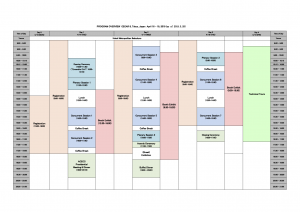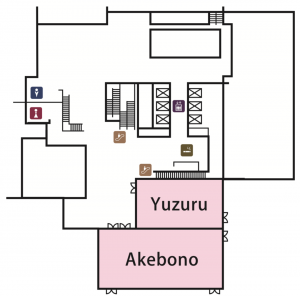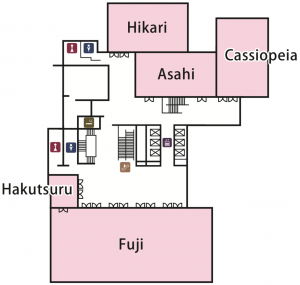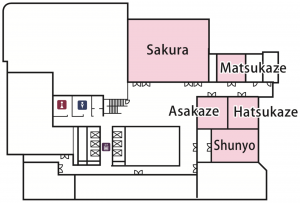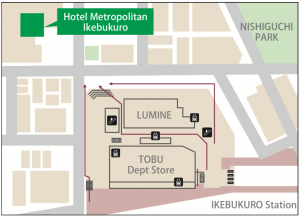Updated on April 4, 2019.
CECAR8
“Resilient Infrastructures in Seamless Asia”
The 8th Civil Engineering Conference in the Asian Region
April 16-19, 2019, Tokyo
Hotel Metropolitan Ikebukuro
Note: This page includes the most updated contents of the Preliminary Program, thus these contents are subject to change. The finalized printed version will be handed out at the conference.
- Greetings from Organizer
- Member List
- ACECC
- CECAR8 LOC
- ACECC and CECAR
- ACECC Tokyo Declaration 2019
- Program Overview
- Plenary Sessions
- Mr. Jitsuro Terashima “Global Vision of the 22nd Century – The Roles of Asia in the 21st Century”
- Ms. Robin A. Kemper: “Engineering the Future”
- Mr. Benoit Rulleau: “Building Resilient Airports in Asia”
- ACECC Awards Ceremony
- Opening and Closing Ceremonies
- Ensemble Civil
- Buffet Dinner
- Floor Plan & Acess Map
- Technical Sessions
- Booth Exhibition
- Technical Tours
- General Information
- LOC Members
- Acknowledgment
Greetings from Organizer
From ACECC Chair
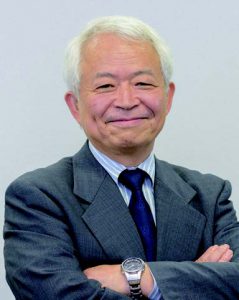
Prof. Osamu Kusakabe
On behalf of ACECC Executive Committee, I would like to warmly welcome all the members of ACECC member societies/institutions to CECAR 8 in Tokyo. ACECC has a 20-year history since its establishment in 1999 and equipped with two vehicles in its main activity: Technical Committee and CECAR (Civil Engineering Conference in the Asian Region).
I have participated in all the previous CECARs except CECAR6 over these two decades. CECAR has been providing every participant with a unique meeting opportunity with respect to both professional and geographical points of view. You will meet a wide range of academia, practitioners as well as decision-makers related to infrastructure development from the Asia and Pacific regions during this four days conference. The new personal network you can create during the conference will certainly form a valuable asset for your future career.
The local organizing committee chaired by Mr. Masayasu Kayano has been working very hard to prepare the best program possible by inviting prominent keynote speakers and by closely working with ACECC Technical Committees. I would like to thank and congratulate the local organizing committee for making CECAR8 possible and successful. I would like to also express our gratitude, on behalf of ACECC, for all the financial supporters and technical contributors as well as participants for the success of CECAR8.
Osamu Kusakabe, Ph.D.
ACECC Chair
From LOC Chair
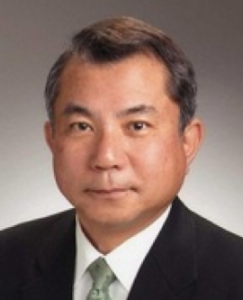
Mr. Masayasu Kayano
On behalf of the Japan Society of Civil Engineers (JSCE) and the Asian Civil Engineering Coordinating Council (ACECC), I would like to welcome all of you to the 8th Civil Engineering Conference in the Asian Region (CECAR8). As the chair of the local organizing committee, it is my great pleasure to host CECAR8 in Tokyo, for the second time since 2001, with a lot of participants from over 30 countries, in this memorable year of the 20th anniversary of ACECC.
The main theme of the conference “Resilient Infrastructures in Seamless Asia” has been appropriately chosen, in the sense that it is taking place in Japan with its frequent natural disasters, including the Great East Japan Earthquake 2011. The CECAR8 should be an excellent opportunity, not only for sharing the knowledge and experience Japan has gained in disaster recovery and reconstruction, but also for discussing the roles of civil engineers in building and maintaining resilient infrastructures in the Asian region.
To help set the tone of the conference, we have asked three wonderful speakers to deliver their keynote addresses: Mr. Jitsuro Terashima, Chairman of Japan Research Institute and President of Tama University, Ms. Robin A. Kemper, ASCE President, and Mr. Benoit Rulleau, Corporate Executive Vice President and Chief Technical Officer of Kansai Airports.
In some 50 technical sessions that follow, approximately 250 papers will be presented under diverse topics from infrastructure management, innovative construction technologies to civil engineering education. We will also have about 50 exhibit booths where governments and companies from Japan and elsewhere present their latest technologies and major projects. Additionally, we offer nine technical tours, including a one-day trip to the areas hit by the Great East Japan Earthquake.
The conference is to culminate in the announcement of our vision: the ACECC Tokyo Declaration 2019 whereby we intend to set the future direction of ACECC’s activities to better fulfill our responsibilities as civil engineers in addressing various problems in the Asian region.
We look forward to seeing you all at CECAR8 in Tokyo, Japan.
Masayasu Kayano
Chair, LOC of CECAR8
Member List
ACECC
American Society of Civil Engineers (ASCE)
Chinese Institute of Civil and Hydraulic Engineering (CICHE)
Engineers Australia (EA)
Indonesian Society of Civil and Structural Engineers (HAKI)
The Institution of Civil Engineers, India (ICE(I))
The Institution of Engineers, Bangladesh (IEB)
The Institution of Engineers, Pakistan (IEP)
Japan Society of Civil Engineers (JSCE)
Korean Society of Civil Engineers (KSCE)
Mongolian Association of Civil Engineers (MACE)
Nepal Engineers’ Association (NEA)
Philippine Institute of Civil Engineers (PICE)
Vietnam Federation of Civil Engineering Association (VFCEA)
CECAR8 LOC
Osamu Kusakabe, Ph.D., ACECC Chair (International Press-in Association)
Masayasu Kayano, LOC Chair (Kajima Corporation)
Makoto Kimura, Ph.D., LOC Secretary General (Kyoto University)
Norio Hanaoka, Administration & Financial Mgt. Task Force (Yachiyo Engineering Co., Ltd.)
Shinji Sato, Dr.Eng., Academic Program Task Force (The University of Tokyo)
Hirofumi Ohnishi, Dr.Eng., Program Planning Task Force (Katahira & Engineers Inc.)
Kenichi Horikoshi, Ph.D., ACECC Secretary General (Taisei Corporation)
ACECC and CECAR
ACECC: Asian Civil Engineering Coordinating Council
ACECC, the Asian Civil Engineering Coordinating Council, was established on September 27, 1999 in Tokyo, with five civil engineering societies/institutions present, namely ASCE, CICHE, JSCE, KSCE, and PICE, to promote collaborative work towards sustainable development of infrastructure within the Asian region.
ACECC membership is open to worldwide professional organizations that comply with the criteria established in the Constitution and By-laws, a copy of which is posted on the website – www.acecc-world.org.
- To promote and advance the science and practice of civil engineering and related professions for sustainable development in the Asian region.
- To encourage communication between persons in charge of scientific and technical responsibility for any field of civil engineering.
- To improve, extend and enhance activities such as infrastructure construction and management, preservation of the precious environment and natural disaster prevention.
- To foster exchange of ideas among the member societies/institutions.
- To cooperate with any regional, national and international organizations to support their
work, as the ACECC deems necessary. - To provide advice to member societies/institutions to strengthen their domestic activities.
- To achieve the above objectives, an international conference called the Civil Engineering Conference in the Asian Region (CECAR) will be held on a triennial basis as the main activity of the ACECC.
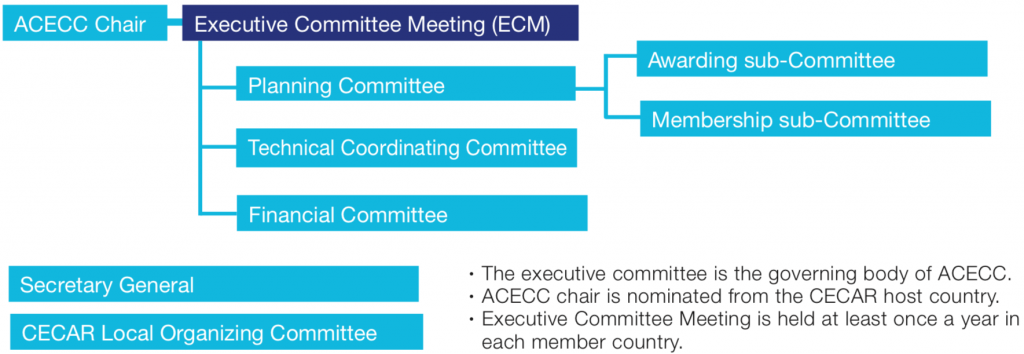
Organization of ACECC
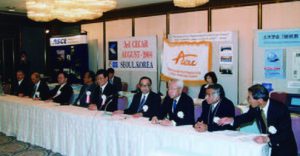
CECAR2
CECAR: Civil Engineering Conference in the Asian Region
The international conference organized by ACECC, CECAR, is one of the major activities of ACECC. Leaders and decision makers from academia, industry, and the public sector get together to discuss the issue of infrastructure development in the Asian region, and disseminate developments and potential solutions to the world. CECAR is held every three years with participants from ACECC member countries and others.
- 1st CECAR: hosted by PICE, on February 19-20, 1998, in Manila, Philippines
- 2nd CECAR: hosted by JSCE, on April 16-20, 2001, in Toky, Japan
- 3nd CECAR: hosted by KSCE, on August 16-19, 2004, in Seoul, Korea
- 4th CECAR: hosted by CICHE, on June 25-28, 2007, in Taipei, Taiwan
- 5th CECAR: hosted by EA, on August 8-12, 2010, in Sydney, Australia
- 6th CECAR: hosted by HAKI, onAugust 20-22, 2013, in Jakarta, Indonesia
- 7th CECAR: hosted by ASCE, on August 30-September 2, 2016, Honolulu, USA
- 8th CECAR: hosted by JSCE, on April 16-19, 2019, in Tokyo, Japan
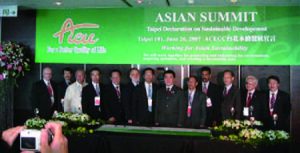
CECAR4
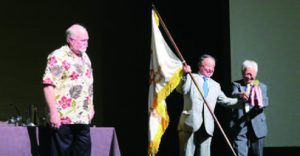
CECAR7
CECAR8
Theme
Resilient Infrastructures in Seamless Asia
Concepts
- Recognize the role of civil engineers in building resilient society and quality infrastructure
- Contribute civil engineering knowledge to policy-making on infrastructure
- Strengthen the public-private-academic partnership to address global challenges
- Cultivate the next generations of civil engineer
- Promote diversity in the civil engineering profession
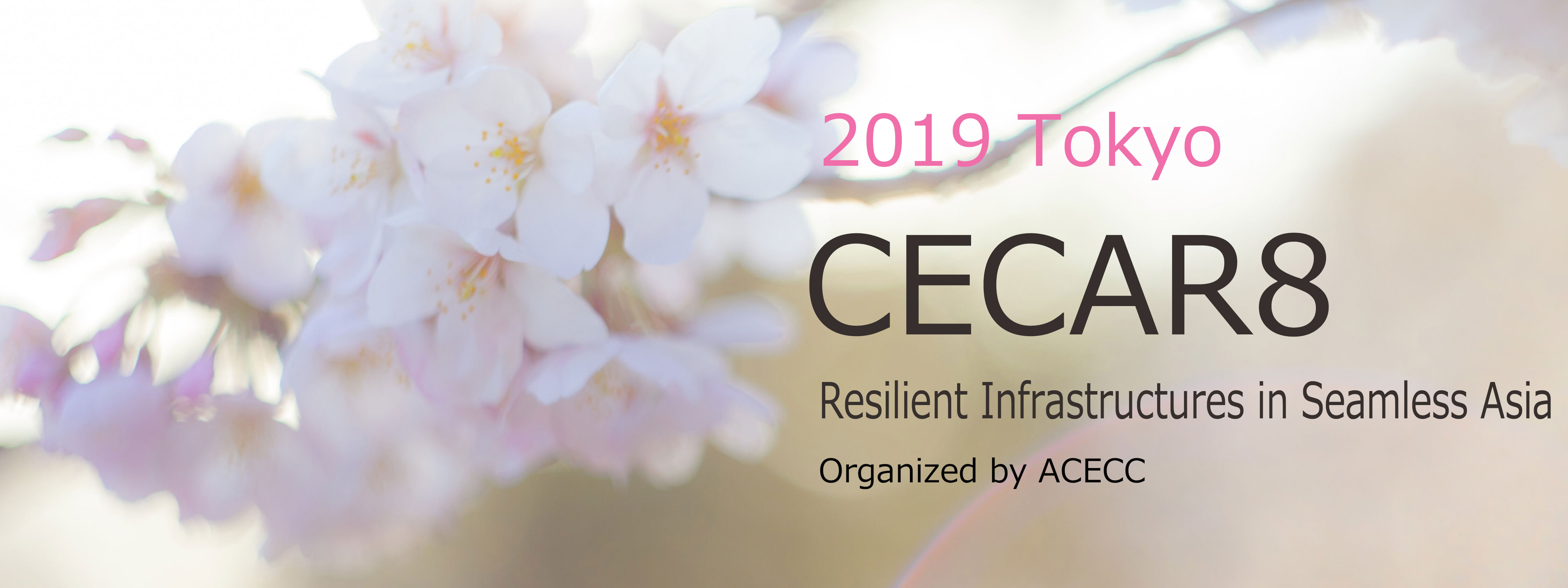
ACECC Tokyo Declaration 2019
CECAR is one of the characteristic international conferences, in that the topics dealt in the conference are quite broad which cover the area of civil engineering, and that top leaders from industry, government and academia among ACECC member countries will get together to discuss the future of infrastructure in the Asian region.
By taking this unique opportunity of CECAR, ACECC holds a special “Presidential Meeting,” which presidents of all ACECC members join to share the latest information on civil engineering and to discuss future policies of ACECC.
The summaries of the presidential meetings in the past CECARs, are disseminated globally: http://www.acecc-world.org/cecar.html
- Summary Report of Presidential Meeting at the 2nd CECAR in Tokyo, on April 17, 2001
- Taipei Declaration on Sustainable Development at the 4th CECAR in Taipei, on June 27, 2007
- Presidents’ Communiqué at the 5th CECAR in Sydney, on August 8, 2010
- Jakarta Protocol at the 6th CECAR in Jakarta, on August 20, 2013
In the messages, sustainability is one of the most common keywords. Several issues at each time such as environment, climate change, natural disasters, traffic problems, rapid urbanization, education, maintenance of infrastructures, and others, are raised and summarized. Then the agreed strong wills and actions of ACECC to solve these issues are delivered for the future.
In the CECAR8, a new message will be discussed at the presidential meeting on April 16, 2019, and its summary of the discussion will be introduced at the closing ceremony. That new message will be the code of conduct and activity for all ACECC members.

Signing Ceremony at CECAR6 on August 20, 2013
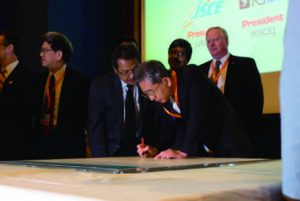
Signing Ceremony at CECAR6 on August 20, 2013
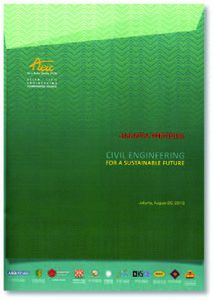
Jakarta Protocol at CECAR6
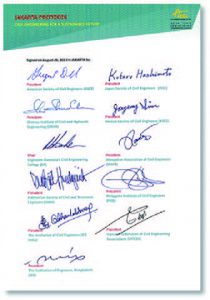
Jakarta Protocol at CECAR6
Program Overview
Link to program overview
Plenary Sessions
Plenary Session 1
Tuesday, April 16, 11:30 – 12:30 (Fuji, 3rd floor)
Global Vision of the 22nd Century -The Roles of Asia in the 21st Century-
Mr. Jitsuro Terashima
Chairman, Japan Research Institute
President, Tama University
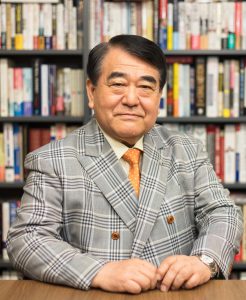
Mr. Jitsuro Terashima
Mr. Jitsuro Terashima is Chairman of Japan Research Institute and is President of Tama University.
He was born in Hokkaido in 1947. In 1973, he completed his master course in Waseda University, and his major was Decision-making Theory in political science.
He joined Mitsui & Co., Ltd. in 1973. From 1991 to 1997 he played as General Manager of Mitsui’s Washington, D.C. Office.
In 1999 he assumed office as president and CEO of Mitsui Global Strategic Studies Institute. In 2001 he took office as the chairman of Japan Research Institute. From 2002 to 2009 he played as a professor of Waseda University, Institute of Asia-Pacific Studies. From 2009 he also played as president of Tama University.
In 2010 he was awarded an honorary doctoral degree from Waseda University.
In addition, he leads many Japanese national governmental committees on globalization, and there are also many writings.
*The lecture will be delivered in Japanese with simultaneous interpretation between Japanese and English.
Plenary Session 2
Wednesday, April 17, 16:00 – 17:00 (Fuji, 3rd floor)
Engineering the Future
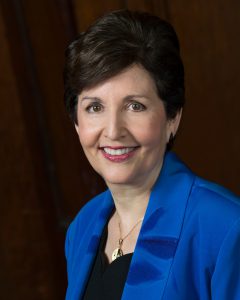
Ms. Robin A. Kemper
Ms. Robin A. Kemper
ASCE President
Robin A. Kemper, PE, LEED AP, F. SEI, F. ASCE and ASCE President has diverse structural engineering experience focused mainly on buildings. She is a Risk Engineer with Zurich North America. She provides technical support to construction project policies. Robin has a passion for Engineering Ethics, and in her spare time has given over 20 presentations to various engineering groups.
Robin also served on the Board of Direction of Engineers Without Borders, and the CE Industrial Advisory Board of Rensselaer Polytechnic Institute, her alma mater. She is currently a member of the CE Industrial Advisory Boards for Rutgers University and the College of New Jersey.
Robin loves travel, seaside vacations, and her family. She and Chris have been married for 37 years; they have two wonderful daughters and two great son-in-laws, and Robin loves playing with the newest member of the family, grandson Jonah.
*The lecture will be delivered in English with simultaneous interpretation between Japanese and English.
Plenary Session 3
Thursday, April 18, 9:30 – 10:30 (Fuji, 3rd floor)
Building Resilient Airports in Asia
Mr. Benoit Rulleau
Corporate Executive Vice President and Chief Technical Officer, Kansai Airports
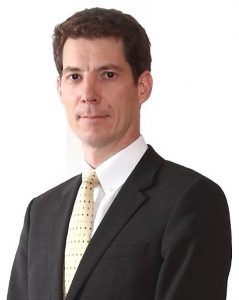
Mr. Benoit Rulleau
After graduating from Ecole Poly- technique with majors in mechanics and economics, Benoit Rulleau followed a master course in civil aviation in ENAC. He started his career in French Civil Aviation Bureau, in the field of air traffic control. In 2008, Benoit joined the French Embassy in Japan as an economic counselor in charge of transport, construction, energy and environment. He then decided to stay in Japan and studied Japanese and business in Waseda University. After several experiences working in Japanese companies in link with transport, urbanism and energy, Benoit is currently Chief Technical Officer of Kansai Airports and enjoys developing, securing and improving the facilities of KIX, Itami and Kobe airports with his teams.
Benoit considers climate change as the biggest threat on humankind today, and is passionate about reducing environmental disruption caused by modern societies. Benoit met his wife Etsuko in Canada during university years. Etsuko was born in Kobe, gives him incredible support and love, and is fluent in Kansai ben. They have 2 wonderful kids.
*The lecture will be delivered in English with simultaneous interpretation between Japanese and English.
ACECC Awards Ceremony
Wednesday, April 17, 17:00-17:30 (Fuji, 3rd floor)
Join the leaders of ACECC in celebrating the achievements of honorees as they present the following awards.
The ACECC Civil Engineering Award shall be granted to a project that contributed a remarkable advancement of civil engineering and development in Asia, honoring and recognizing the efforts made by all those engineers who worked for the project.
The ACECC Technical Committee Award has been newly added since this time. This Award will be granted to a Technical Committee which has shown exceptional leadership and professionalism in the activities of the TC and is judged to have achieved a remarkable contribution to the advancement of civil engineering development in Asia.
2019 ACECC OUTSTANDING CIVIL ENGINEERING PROJECT AWARD
Eurasia Tunnel Project
SK E&C, Korea, and Yapı Merkezi, Turkey
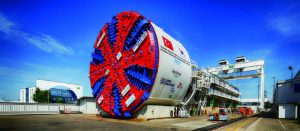
Eurasia Tunnel Project
2019 ACECC CIVIL ENGINEERING PROJECT AWARDS
Taiwan Taoyuan International Airport Access MRT System Construction Project (TIAA MRT Project)
Railway Bureau, Ministry of Transportation and Communications (MOTC), Taiwan
Emergency 2007 Cyclone Recovery and Restoration Project (ECRRP), BWDB
Bangladesh Water Development Board (BWDB), Ministry of Water Resources, People’s Republic of Bangladesh
Housing Reconstruction Awaran (HRA) Project
Housing Reconstruction Awaran Project, Government of Balochistan – Pakistan (Execution Agency) and NED University of Engineering & Technology, Karachi – Pakistan (R & D Partner)
Shinjuku Terminal South Gate Area Infrastructure Development Project
Tokyo National Highway Office, Ministry of Land, Infrastructure, Transport and Tourism, and Tokyo Construction Office, East Japan Railway Company
Underground Critical Facilities Construction at Oyutolgoi Project of Mongolia
MCS Property LLC, Mongolia
2019 ACECC ACHIEVEMENT AWARDS
Dr. Yumio Ishii
Honorary Adviser, CTI Engineering, Co., Ltd.
Dr. Sahibzada Farooq Ahmad Rafeeqi
Former Chairman, the Institution of Engineers Pakistan, Karachi Center & Former Pro Vice Chancellor, NED University of Engineering & Technology, Karachi-Pakistan
Mr. Paul Louis Mitchell
Centre for Pavement Excellence Asia Pacific Limited
Dr. John Chien-Chung Li
Chinese Institute of Engineers and National Central University
2019 ACECC TECHNICAL COMMITTEE ACTIVITY AWARD
TC-13 BIM (Building Information Modeling/Management)
(TC Chair: Prof. Sang-Ho Lee, KSCE)
Opening and Closing Ceremonies
Opening Ceremony
Tuesday, April 16, 10:00 – 11:30 (Fuji, 3rd floor)
The Opening Ceremony begins with the performance by the string orchestra, “Ensemble Civil.” Then, the Local Organizing Committee (LOC) Chair introduces the outlines of ACECC. Having guests from the Ministry of Land, Infrastructure, Transport and Tourism, and Tokyo Metropolitan Government, the highlights of three-day CECAR8 events will be introduced, along with the address by the Chair of ACECC.
- Opening with performance by Ensemble Civil
- Opening Address by Mr. Masayasu Kayano, LOC Chair
- Welcome Addresses by Prof. Osamu Kusakabe, ACECC Chair and Prof. Kiyoshi Kobayashi, JSCE President
- Guest speeches by
- Dr. Masafumi Mori, Vice-Minister of Land, Infrastructure, Transport and Tourism
- Mr. Akira Hasegawa, Vice Governor of Tokyo
- Highlights of CECAR8 by Dr. Yukihiro Tsukada, JSCE Executive Director
- Introduction of the ACECC Presidents and Group Photo Session
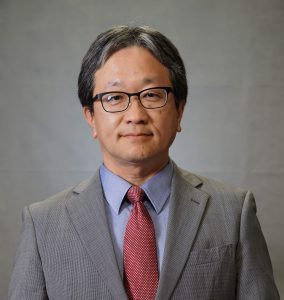
Dr. Masafumi Mori
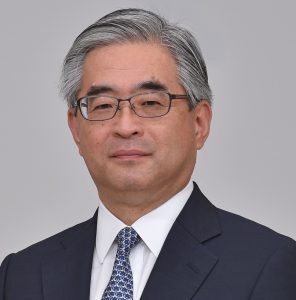
Mr. Akira Hasegae

Mr. Masayasu Kayano
Closing Ceremony
Thursday, April 18, 16:00 – 17:00 (Fuji, 3rd floor)
CECAR8 will be summarized, and Tokyo Declaration 2019, which was signed by the ACECC members on the first day of the conference, will be announced. Then, the next CECAR host, the Institution of Civil Engineers, India (ICE(I)) will be introduced and handed over the ACECC flag.
- Closing Address by Prof. Osamu Kusakabe, ACECC Chair
- Summary of CECAR8 by Dr. Kenichi Horikoshi, ACECC Secretary General, and Prof. Makoto Kimura, LOC Secretary General
- Tokyo Declaration 2019 by Prof. Kiyoshi Kobayashi, JSCE President
- Introduction of the Next Host Country and Flag Hand-over
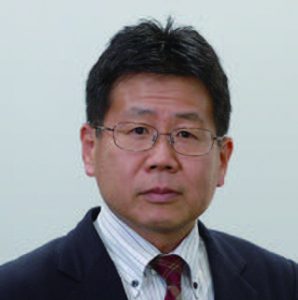
Dr. Kenichi Horikoshi
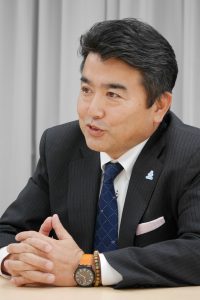
Prof. Makoto Kimura
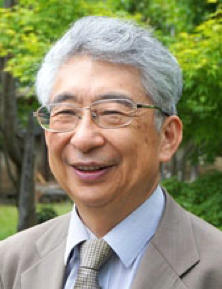
Prof. Kiyoshi Kobayashi
Ensemble Civil
Tuesday, April 16, 10:00 – 10:15 (Fuji, 3rd floor)
Program:
- Edvard Grieg, “Holberg Suite, Praeludium”
- Wolfgang Amadeus Mozart, “Divertimento KV. 136”
Ensemble Civil (EC) is a string orchestra composed of fourteen civil engineers who are the members of Japan Society of Civil Engineers (JSCE). The EC was formed in December 1993 to play a musical performance at the JSCE’s 80th anniversary ceremony in 1994. The EC participates in JSCE General Assembly, Annual Meeting, and other events in and outside the country.
The EC played at the JSCE’s 100th Anniversary Celebration held in Tokyo, November 2014, at the headquarters of Institution of Civil Engineers (ICE) in London, 1995 by the ICE’s invitation, and at the joint seminar of Yangon Technological University, Myanmar Engineering Society and JSCE in Yangon, 2017. Moreover, the quartet of the EC’s chief players played in Korea in 2008 and Poland in 2017.
The EC’s motto is being a top-notch civil engineer as well as a top-notch musician. The members from around the country take an active role as civil engineer in the front line while they play music in local amateur orchestras. Although their workplaces are varied and they have only a few opportunities to practice together in a year, which are twice-a-year training camps in Yamanashi Prefecture and on very days that they have concerts, they are closely connected to one another with a sense of integrity and pride as professional civil engineers. Once they get together, they easily build rapport and harmony in performance, being led by the concert master.
The members, being well aware of their roles in the EC as a music performer as well as a civil engineer in society, and understand the significance of building good things in cooperative efforts among them. Because of that, they can create harmonious sounds just like they coordinate with each other as civil engineer in field.
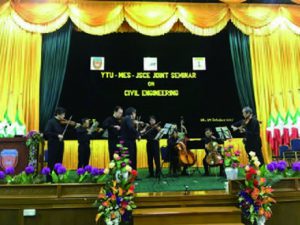
Ensemble Civil
Buffet Dinner
Wednesday, April 17, 18:30 – 20:00 (Fuji, 3rd floor)
At the beginning of the party, traditional Japanese celebration “Kagami- Biraki” will be performed. Guests and hosts will open large Japanese sake barrels to start dinner. Traditional Japanese foods and drinks, Western and vegetarians, Haral, and more dishes will be served. Enjoy the celebration!
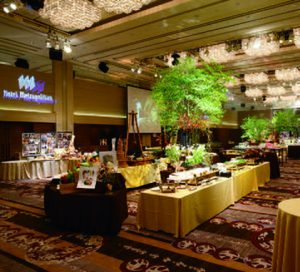
Traditional Japanese Performance “DAIKAGURA”
A Japanese traditional performance “Edo-Daikagura” will be presented during dinner. Senmaru and Yuki perform around Japan and overseas, and have gained splendid reputation.
“Edo” is the old name of Tokyo. “Daikagura” is a dance for gods to pray for health and happiness. Besides the dance, traditional Japanese acrobatics and tricks will be played during the dinner.
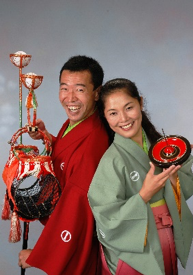
Senmaru & Yuki
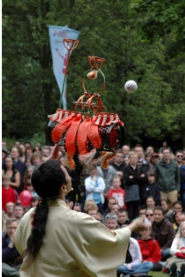
Senmaru & Yuki
Floor Plan & Acess Map
Floor Plan
Access Map
ENG: https://www.hotelmetropolitan.jp/en-gb/destination/directions
JPN: https://ikebukuro.metropolitan.jp/access/index.html
Hotel Metropolitan Ikebukuro
1-6-1 Nishi-Ikebukuro
Toshima-ku, Tokyo 171-8505, JAPAN
Tel: +81-(0)3-3980-1111
info@metropolitan.jp
Technical Sessions
Session Table
Technical Sessions in Detail
Link to Technical Sessions Details
Updated:
- TS6-8 (2019/1/21)
- TS4-7, TS6-14 (2019/1/25)
- TS2-2, GS-1 & GS-5-1, GS-1 & GS-5-2, GS-6-4 (2019/2/8)
Booth Exhibition
Tuesday, April 16, 12:30-18:00
Wednesday, April 17, 9:30-18:30
Thursday, April 18, 9:30-15:30
Venues:
Hikari, Asahi, and Cassiopeia at the 3rd Floor of Hotel Metropolitan Ikebukuro
- Booths #1-17 at Room Hikari
- Booths #18-28 at Room Asahi
- Booths #29-47 at Room Cassiopeia
Link to the List of Exhibitors
Technical Tours
CECAR8 technical tours visit construction management sites in Japan. Those tours show Japan’s dynamic and sustainable infrastructure development and O&M (operation and maintenance), as well as urban development projects in and around metropolitan Tokyo. You will experience the cutting-edge technologies as well as historical city planning.
A. One-day Tours / Infrastructure Facility Tours
1. Road Infrastructure Tour in and around Tokyo
Date: Friday, April 19th, 2019, 9:00 – 18:15
Latest planning, design, construction, operation & maintenance technology, traffic control system, and more related to road infrastructures are included in this one-day tour.
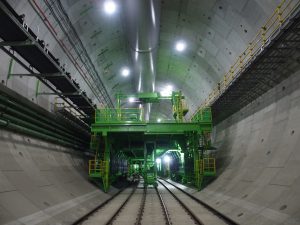
Tomei JCT / Source: Tokyo Outer Ring Road Project Website
2. Water Supply & Sewerage Infrastructure Tour
Date: Friday, April 19th, 2019, 8:30 – 17:30
This tour visits one of the world’s top-ranked tap water supply system that has long history back to the Edo era starting the 17th century. It also shows you environment-friendly wastewater treatment facilities in Tokyo. Then, you will see the city from the surface of Sumida River, which has been an important inland-water-way.

Displays at Tokyo Waterworks Historical Museum
3. Railway Infrastructure Tour
Date: Friday, April 19th, 2019, 9:00 – 17:40
This tour gives you first-hand railway experience. You will get on various Japanese trains, such as Shinkansen, new transit (Yurikamome), subway, and conventional railway. The tour finishes at the Railway Museum.

Shinkansen
4. Tour of Reconstruction from the Great East Japan Earthquake
Date: Friday, April 19th, 2019, 8:00 – 20:30
You will gain the experience to visit earthquake-affected areas with guides who have survived the disaster. They will share their experience and explain the recovery efforts.

Reconstruction Project
5. Construction and Demolition Waste Recycling Facilities Tour
Date: Friday, April 19th, 2019, 9:30 – 18:00
This tour will show you how the final volume of disposed waste is reduced with the state-of-the-art recycling technology and system at recycling facilities operated by Tokyo Metropolitan Government and private companies. The tour is organized and supported by Promotion Council for Recycling Construction Materials and Wastes Secretariat at Advanced Construction Technology Center.

Tokyo Metropolitan Construction Waste Soil Recycling Center / Source: Center’s brochure
B. Half-day Tours / Urban Development Tours
1. Shinjuku Area and View from Tokyo Govt. Building
Date: Tuesday, April 16th, 2019, 14:00 – 17:00
In this tour, you will stroll around the Shinjuku Subcenter, Japan’s most developed business district. You will enjoy magnificent views on the top floor of the Tokyo Metropolitan Government buildings.

View from TMG Building’s Observation Deck
2. Excursion in Ikebukuro Area
Date: Thursday, April 18th, 2019, 13:30 – 15:30
Ikebukuro, a Tokyo’s busiest transportation hub, has a unique tree-like government office building designed by Kengo Kuma. You will see the building and stroll in the park in the building.

Toshima Forest at New Toshima City Office
3. Seibu Line Construction Site
Date: Wednesday, April 17th, 2019, 9:30 – 12:30
You will step into a highway and railway grade separation construction site where the high-standard civil engineering and transportation policies are implemented.
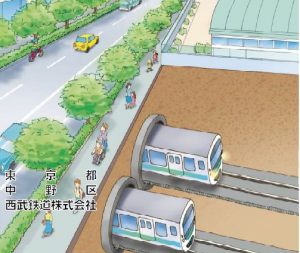
Seibu-Shinjuku Line / Source: Tokyo Metropolitan Government Website
C. Tour with Young Engineers
Edo-Taste Old Town Tour; Kawagoe
Date: Tuesday, April 16th, 2019, 13:30 – 17:30
You will visit a small old town “Kawagoe” that maintains the atmosphere of Ja- pan’s old Edo period (1603-1868). A group of young Japanese civil engineers will accompany you to provide information on the sites.
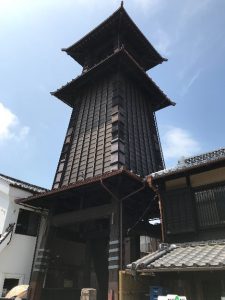
The Time Bell Tower
General Information
Registration Hours
April 15 — 13:00-18:00
April 16 — 8:00-18:00
April 17 — 8:00-18:00
April 18 — 8:00-15:40
Venue
Hotel Metropolitan Ikebukuro
1-6-1 Nishi-Ikebukuro, Toshima-ku, Tokyo 171-8505
Tel: +81-(0)3-3980-1111
info@metropolitan.jp
https://www.hotelmetropolitan.jp/en-gb
Contact during CECAR8
Registration Desk: 3rd Floor
Secretariat Office: Room Matsukaze, 4th floor
Tel: +81(0)90-3100-0978
cecar8@jsce.or.jp
Attire
The dress code of the conference is business casual to business. As for technical tours, we recommend attendees to wear comfortable shoes.
Registration Fees include
Opening and closing ceremonies, plenary and technical sessions, ACECC Awards Ceremony, and buffet dinner. Student registration does not include buffet dinner.
Name Badge
Your conference registration name badge is your admission to the Conference. During your time of attendance, please wear the badge. If you lost your name badge, report to the registration desk.
Booth Exhibition
Booth exhibition takes place in “Hikari,” “Asahi,” and “Cassiopeia” on the 3rd floor. About 50 booths are run during the conference. Please stop by and check state-of-the-art technologies and projects.
Dining around the Venue
There are various restaurants around the venue: Japanese, Thai, Vietnamese, Turkish, Malay, Italian, Halal, and the Japanese style-bar “Izakaya”, which serves light meals and more. Enjoy exploring the area and find your favorite one.
Hotels
There are several hotels around the venue within a walking distance. If you need assistance to make a reservation, feel free to contact the travel agency JTB. They will be happy to assist you.
Weather and Temperature
It is mild in Tokyo in mid-April, but there might be scattered showers. There are some difference in daytime and nighttime temperatures: daily high is around 16 degrees in Celsius and daily low is around 8 degrees in Celsius.
Photographs
Photographs and videos may be taken by ACECC, the LOC/JSCE, their agents, contractors, or representatives, and such photographs and videos may be used for any purposes at ACECC and LOC/JSCE’s discretion.
Liability Disclaimer
In the event of unforeseen circum- stances, the Conference Organizers accept no responsibility for loss incurred by delegates.
Program and Session Cancellation
ACECC and the LOC/JSCE reserve the right to cancel programs due to low registration, absence of speakers, some difficulties and troubles with facilities and equipment of rooms, and natural disasters. Event of cancellation will be announced at the venue. Program and sessions are subject to change, and ACECC and the LOC/ JSCE reserve the right to substitute a program and sessions.
Medical Emergencies
If you, your delegation members, and family members need medical attention during your stay in Japan, you can dial “119” directly, or ask the staff of the venue to call “119” for you.
Tour Policy
Tours are offered every day: one-day and half-day tours. Tours start in front of the venue. ACECC and the LOC/ JSCE reserves the right to cancel a tour if the minimum registration is not met. Tour hours are subject to change.
No Smoking Policy
Smoking is only allowed in the smoking room on the 2nd floor and outside the venue.
Wi-Fi
Wi-Fi will be available at the venue. Follow the instruction listed in the final program.
LOC Members
Acknowledgment
On behalf of ACECC and Local Organizing Committee, we would like to extend our sincere gratitude and appreciation to all those for their hard work, dedication and support, to Ministry of Infrastructure, Land, Transport and Tourism and the Tokyo Metropolitan Government for their continued support, and to Japan Society for the Promotion of Science and Association for Disaster Prevention Research for their financial support. Thank you very much.
